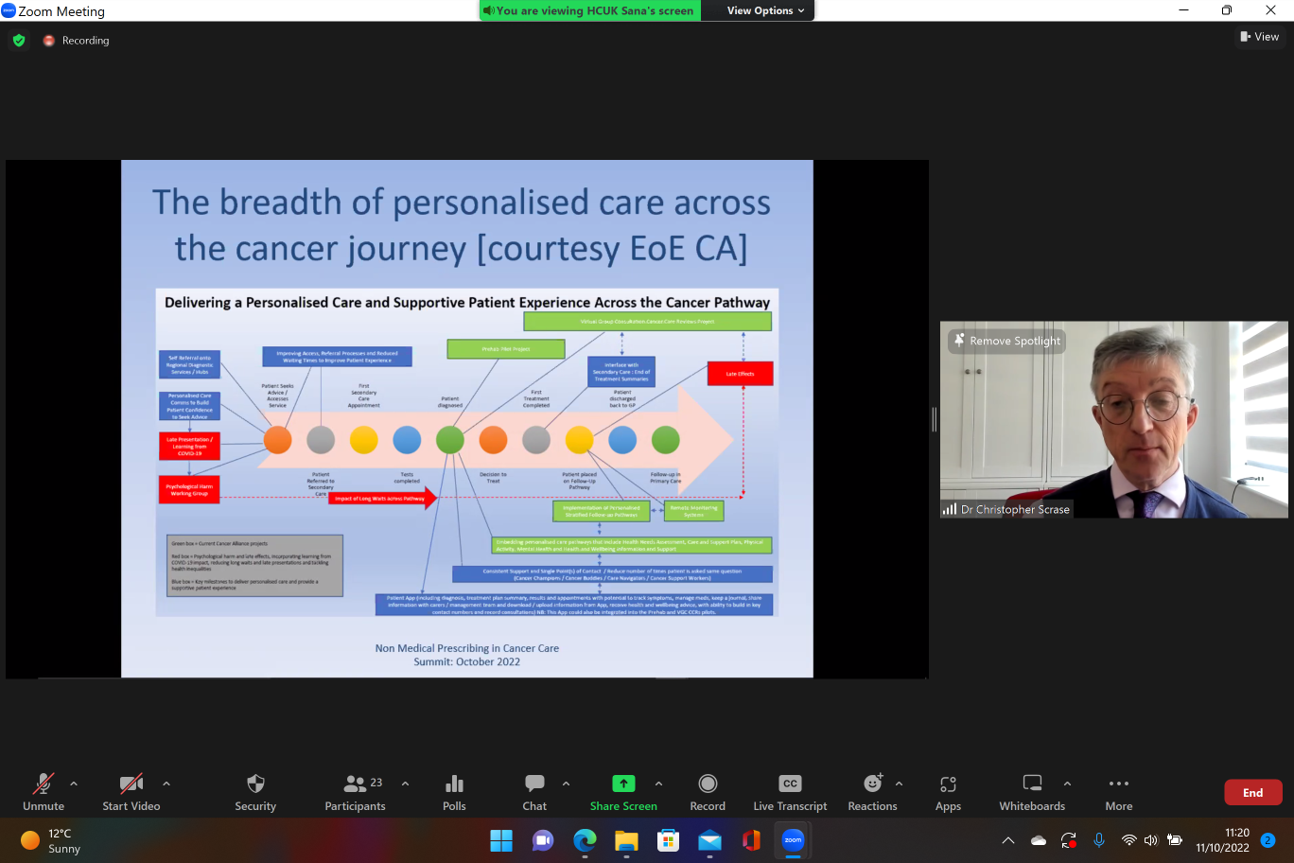News and presentations from todays Non Medical Prescribing in Cancer conference chaired by Barry Quinn
Senior Lecturer for Cancer & Palliative Care Queens University.
Barry opened the conference looking at recent developments for non medical prescribers and challenges in cancer care. Regarding the RPS Framework he said it ensures that patients are safe and also keeps the prescriber safe in their practice through good governance.
Immunotherapy induced side effects and how to mange them
 Trudy-Jane Guinan Nurse Consultant, IO Lead Nurse
Trudy-Jane Guinan Nurse Consultant, IO Lead Nurse
The Clatterbridge Cancer Centre NHS Foundation Trust
• non medical prescribing improving patient outcomes and experience
• immunotherapy induced side effects and how to manage them
• managing acute oncology emergencies
• case studies in practice
Trudy-Jane discussed the importance of patient assessment in the field of immunotherapy and understanding side effects and implications of current medications.
Prescribing for late effects and in cancer survivorship 
Dr Christopher Scrase NHSE Radiotherapy CRG Clinical Member and QI Lead
Macmillan Clinical Lead for Cancer Suffolk and NE Essex ICS
Macmillan Consultant Clinical Oncologist
East Suffolk & North Essex NHS Foundation Trust
• clinic supporting patients experiencing long term or late effects of cancer treatment
• prescribing for late effects
• our experience
- Dr Christopher Scrase Abstract 0.01 MBDOCXfile
- Dr Christopher Scrase Biography 0.01 MBDOCXfile
- Dr Christopher Scrase Slides 5.65 MBPPTXfile
Dr Scrase said cancer is a long-term condition, treatment does result in long-term survival. Many are living with cancer or the consequences of cancer and late effects. It's a success that presents challenges and opportunities. We need to change the mindset, non medical prescribers are part of this as part of the multidisciplinary team.
Dr Scrase listed the needs of people living with cancer as: poor health or disability after treatment; emotional support; financial impact. These needs can be monitored through follow up and remote monitoring. He said it is important to remember there may not always be a phamacological solution but social prescribing maybe relevant.
Additional Resource: Survivorship Care for Cancer-Related Late and Long-Term Effects
